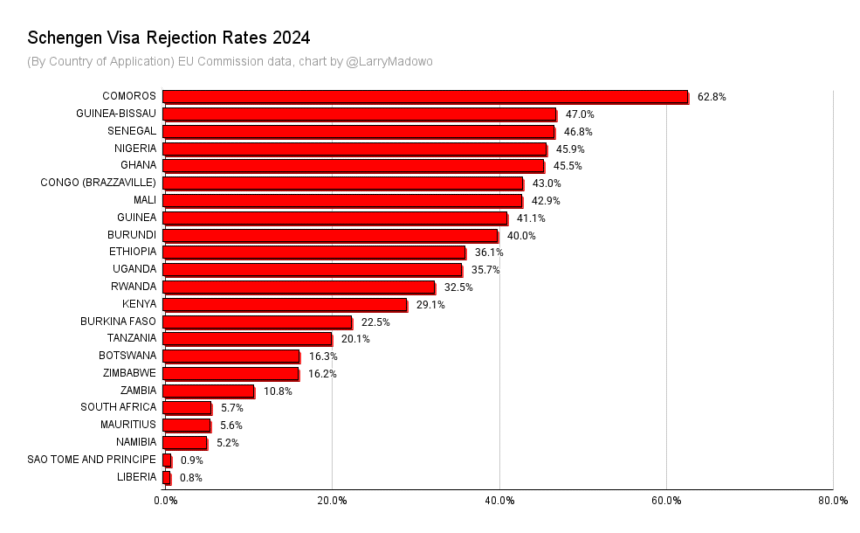Recent data from the European Union Commission has indicated that Nigerian immigrants have collectively suffered a loss of €4.5 million as a result of rejected Schengen visa applications.
The data revealed that the European Union earned €4.5 million from rejected Schengen visa applications submitted by Nigerians in 2024, a sharp increase from the €3.4 million reported in 2023.
Out of 111,201 applications filed by Nigerians, 45.9%, about 51,153, were denied, resulting in substantial financial losses for applicants.
Nigeria’s rejection rate of Schengen visa applications in 2024 is an increase of 40.8% recorded in 2023.
Pan-Atlantic Kompass reports that the losses were driven by a non-refundable visa fee, which currently stands at €90 as of press time.
In the analysis of rejection rates for Schengen visa applications in 2024, Comoros emerged as the country with the highest rejection rate in Africa, standing at 62.8%.
Following Comoros, Guinea-Bissau recorded a rejection rate of 47%, positioning it second.
Senegal ranked third with a rejection rate of 46.8%, while Nigeria placed fourth at 45.9%.
Rounding out the top five was Ghana, which had a rejection rate of 45.5%.
Also, the official data revealed that consulates of EU countries and Schengen-associated countries received a total of 11.7 million applications for short-stay visas in 2024.
This is a 13.6 % increase compared to 2023 (10.3 million) and a 56% increase compared to 2022 (7.5 million).
More than 9.7 million visas were issued in 2024 which is a 14.1% increase compared to 2023 (8.5 million) but still lower than in 2019 (15 million).





